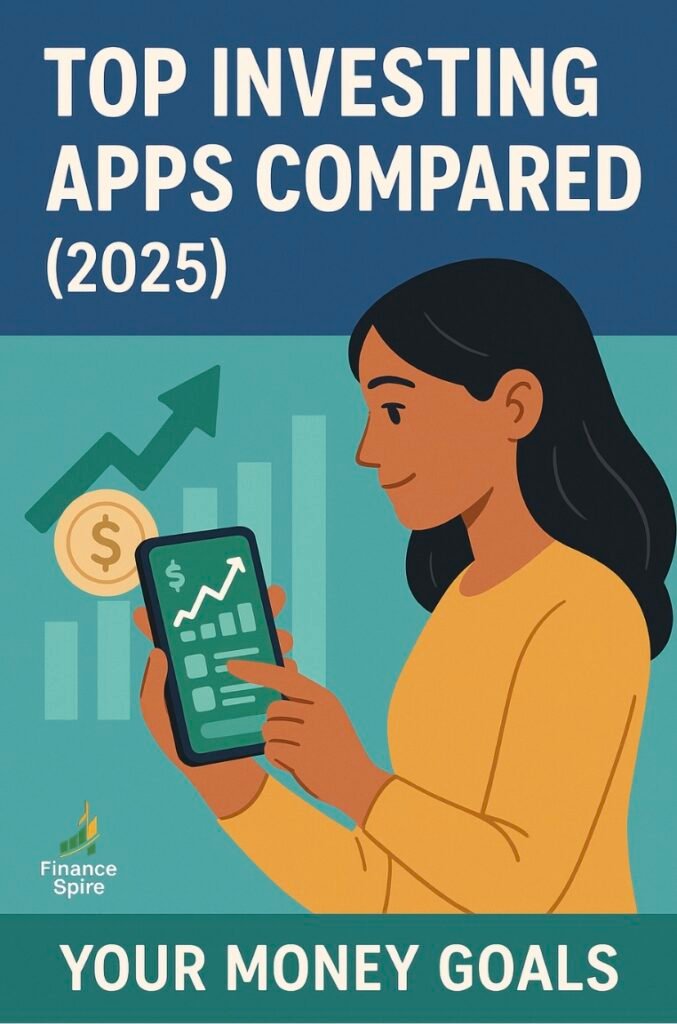Introduction: Can AI Really Manage Your Money?
In 2025, personal finance apps powered by Artificial Intelligence (AI) are everywhere. From robo-advisors managing your investments to budgeting apps tracking your coffee expenses, the rise of AI in finance seems unstoppable. But how much of this is real innovation—and how much is just clever marketing?
In this post, we break down:
- What AI in personal finance really means
- Which tools deliver results
- What’s exaggerated or risky
- How to use AI wisely to improve your money habits
Whether you’re trying to save more, invest smarter, or just stay on top of bills, this guide will help you separate facts from fiction.
What Is AI in Personal Finance?
Artificial Intelligence (AI) refers to smart systems that can analyze data, learn patterns, and make decisions or suggestions based on your financial behavior.
In personal finance, AI shows up in tools like:
- Robo-Advisors (e.g., Betterment, Sarwa): Automate your investments.
- Smart Budgeting Apps (e.g., Cleo, YNAB): Learn your spending habits and suggest budgets.
- AI Credit Scoring: Analyze your creditworthiness beyond traditional scores.
- Fraud Detection Tools: Spot suspicious activity in your bank accounts in real time.
- Banking Chatbots: Provide 24/7 customer service and transaction history.
What AI Tools Actually Work?
Let’s focus on what’s real and useful:
1. Automated Budgeting
Apps like Cleo and YNAB use machine learning to track your spending and predict your future habits. They suggest where to cut back and even send motivational messages to keep you on track.
2. Robo-Advisors for Investing
Platforms such as Betterment and Sarwa offer low-fee, algorithm-based portfolios designed to grow your wealth with minimal input. They adjust investments based on your goals and risk appetite.
3. AI-Powered Savings
Tools like Qapital and Digit monitor your account balance and automatically move small amounts into savings—without you feeling the pinch.
4. Real-Time Fraud Alerts
Banks are using AI to flag transactions that don’t match your usual behavior, preventing fraud before it hits your account.
5. Banking Chatbots
AI-driven bots on apps like Revolut and N26 answer questions instantly, saving you the hassle of waiting on hold.
What’s Overhyped or Potentially Risky?
Not every “AI” product lives up to the promise. Here’s where things get murky:
1. Replacing Financial Advisors
AI can’t fully understand your personal goals, emotions, or family dynamics. For major life decisions (like retirement or inheritance planning), human advisors are still essential.
2. One-Size-Fits-All Investing
Robo-advisors can’t adjust for cultural or regional nuances. For example, Sharia-compliant investing or real estate in Gulf markets needs human insight.
3. Privacy Concerns
Many AI apps collect sensitive financial data. Always check how your data is stored and shared before linking accounts.
4. False Personalization
Some apps claim to use AI but rely on simple rules (e.g., “If salary > X, suggest Y”). That’s not real intelligence—it’s basic automation.
When to Trust AI and When to Trust Yourself
Use AI tools to simplify your financial routine—but don’t give up control. Here’s a quick guide:
| Task | Use AI? | Go Human? |
|---|---|---|
| Daily budgeting | ✅ Yes | ❌ No |
| Long-term investing | ✅ With caution | ✅ Yes |
| Estate planning | ❌ No | ✅ Yes |
| Tax strategy | ❌ No | ✅ Yes |
| Expense tracking | ✅ Yes | ❌ No |
| Emotional spending decisions | ❌ No | ✅ Yes |
📱 5 AI Tools to Try (and Use Wisely)
Here are popular AI personal finance tools worth exploring:
| Tool | Category | Main Feature | Pricing |
|---|---|---|---|
| Cleo | Budgeting | AI chatbot helps track expenses | Free & Paid |
| Digit | Saving | Auto-saves based on behavior | Paid |
| Sarwa | Robo-Investing | Invest based on risk profile | Paid |
| YNAB | Budgeting | Predictive budgeting & planning | Paid |
| Revolut | Banking | AI expense insights + chat support | Free & Paid |
📝 Tip: Start with one tool, test it for 30 days, and evaluate how it fits your lifestyle.
Before You Use AI for Your Finances, Remember:
- ✅ Start small: Don’t automate everything at once.
- 🔒 Check privacy policies: Know how your data is being used.
- 🧠 Stay in control: Use AI to support decisions—not make them blindly.
- 📊 Track your results: Make sure the tool is improving your financial health.
Conclusion: Smart Tools, Smarter You
AI in personal finance is not a magic wand, but when used wisely, it can help you make better decisions, save more, and reduce financial stress.
The key is to understand what these tools can (and cannot) do—and to remain the CEO of your own money.
✅ Ready to Try AI Finance Tools?



